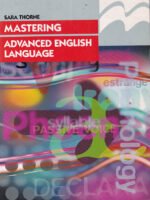This book examines a writing activity that has recently fallen into disrepute. Outlining has a bad reputation among students, even though many teachers and textbooks still recommend the process. In part, the author argues, the medium is to blame. Paper and ink make the revision difficult. But if one uses an electronic outliner, the activity can be very helpful in developing a thoughtful and effective document, particularly one that spans many pages and deals with a complicated subject.
Outlining Goes Electronic takes an historical approach, examining the way people developed the idea of outlining, from the classical period to the present. We see that the medium in which people worked strongly shaped their assumptions, ideas, and use of outlines. In developing a theoretical model of outlining as an activity, the author argues that a relatively new electronic tool?software that accelerates and performs the process of outlining?can give us a new perspective from which to engage previous classroom models of writing, recent writing theory, and current practice in the technical writing field.









Be the first to review “Outlining Goes Electronic: Volume 9 In Attw Contemporary Studies In Technical Comm”